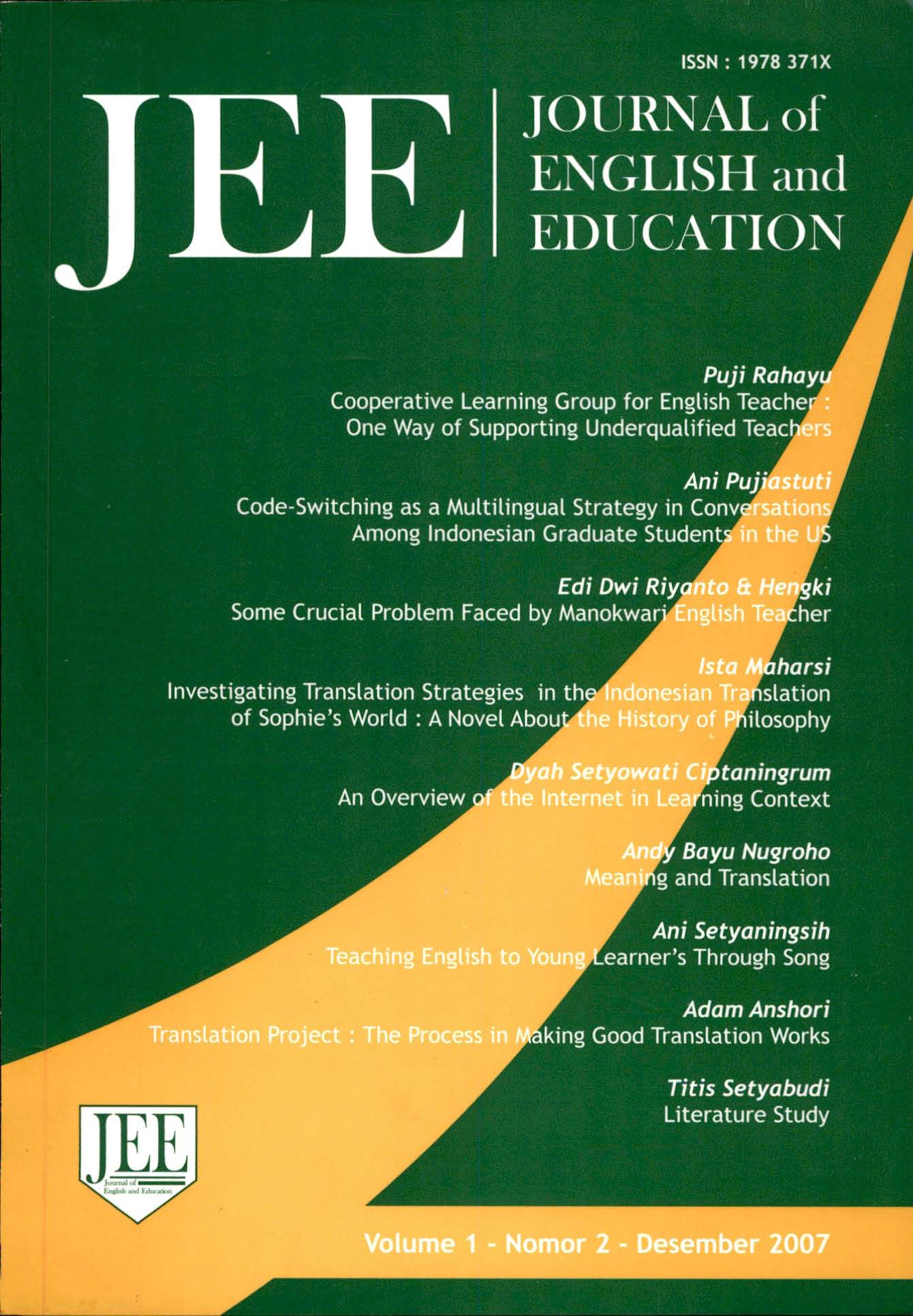Main Article Content
Abstract
The final examination has a significant impact on all stakeholders in corresponding education. It has become a general measurement of success among them and the results reflect the students' and teachers' performance. The ministry of education has selected TOEIC as the vocational high school English final examination in response to the implementation of the Competency-Based Curriculum since 2004. The last two trials of the examinations created a lot of controversies both in the number of failures and their implications to scoring system.
This article conveys reasonable objections to the adoption of international wide scale testing to the English education in Indonesia. Several issues will be addressed to the concern which leads to these failures including the decision to apply TOEIC to measure students' language competencies, the ethical issues in language testing, validity and reliability. These all lead to further idea of the construction of a good standardized English test as high school English final examination.
Keywords
Article Details
Copyright (c) 2016 JEE, Journal of English and Education

This work is licensed under a Creative Commons Attribution-ShareAlike 4.0 International License.
Authors who publish with this journal agree to the following terms:
- Authors retain copyright and grant the journal right of first publication with the work simultaneously licensed under a Creative Commons Attribution-ShareAlike 4.0 International License that allows others to share the work with an acknowledgment of the work's authorship and initial publication in this journal.
- Authors are able to enter into separate, additional contractual arrangements for the non-exclusive distribution of the journal's published version of the work (e.g., post it to an institutional repository or publish it in a book), with an acknowledgment of its initial publication in this journal.
- Authors are permitted and encouraged to post their work online (e.g., in institutional repositories or on their website) prior to and during the submission process, as it can lead to productive exchanges, as well as earlier and greater citation of published work (See The Effect of Open Access).

